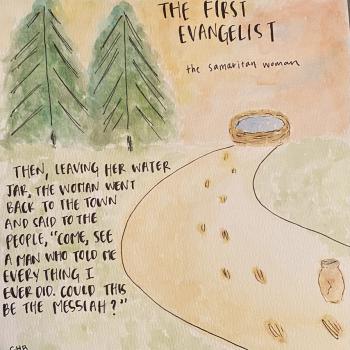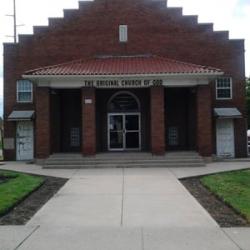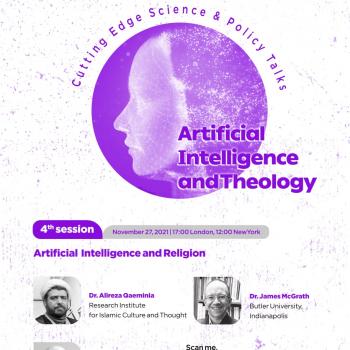I began writing this just after seeing the movie about Mr. Rogers starring Tom Hanks (who looks like him at least in part because he’s related to him). The movie is very creatively done, framed as though it were an episode of Mr. Roger’s Neighborhood. I’ve long admired how Rogers, a Presbyterian minister, put his faith into practice to help others in ways that weren’t preachy but appealing. Christianity at its best, in so many ways. The movie focuses on his impact on one individual – an account that is both inspired by a true story, and significantly fictionalized. For that reason, the movie provides a good starting point for discussion of story and history, and what it can mean for a story to be profoundly true and accurate about an individual it is focused on, even when it includes details that are not the way things ever really happened.
In the movie, Joanne Rogers says she doesn’t like when people call her husband a “living saint” since that gives the impression that what he has and how he lives is unattainable. Well after the movie, I found myself thinking about what Christianity would be like if it envisaged God’s character as more like that of Fred Rogers. Maybe still with a temper, but one that God is at least as able to control and redirect in positive ways than many classic depictions of God have suggested. I then found myself thinking about Gnosticism, and how it makes all the opposition to humans uniting with God be focused elsewhere than within the supreme God, with malevolent intermediaries as well as humans who are content to wallow in ignorance, but no sense in which the divine character or utterances might be a problem, as is the case in some Christian theological systems.
Talk of the neighborhood got me thinking about The Good Place as well. I wonder whether the direction The Good Place is headed is that it takes more than one lifetime to figure out what really matters, and so Chidi and friends are essentially going to propose reincarnation. The wheel of Karma from Indian tradition raises some of the same questions and problems that The Good Place does. Why does the cosmos function in the way that it does? Why are there demons and a judge who’ve apparently existed since the beginning of time (but not before?) and who simply take for granted the system they are a part of and the roles they play in it?
Back to the movie again, in it Jerry Vogel says that it is unfair that he’s finally figured out how to live as he’s dying. That’s also the message of Groundhog Day and many other great films.
As hinted at earlier in this blog post, it is definitely worth reading about the liberties and creative license taken in comparison with the real-life Fred Rogers. The responses to the explicit mentions of Rogers’ religious perspective in the film are also interesting to read and compare. See also:













